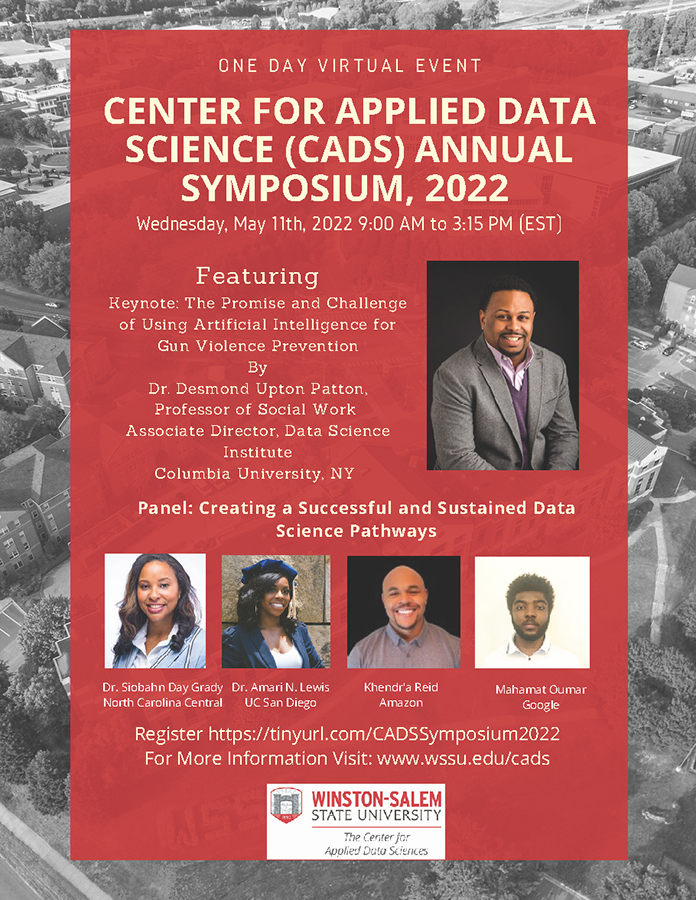News & Events
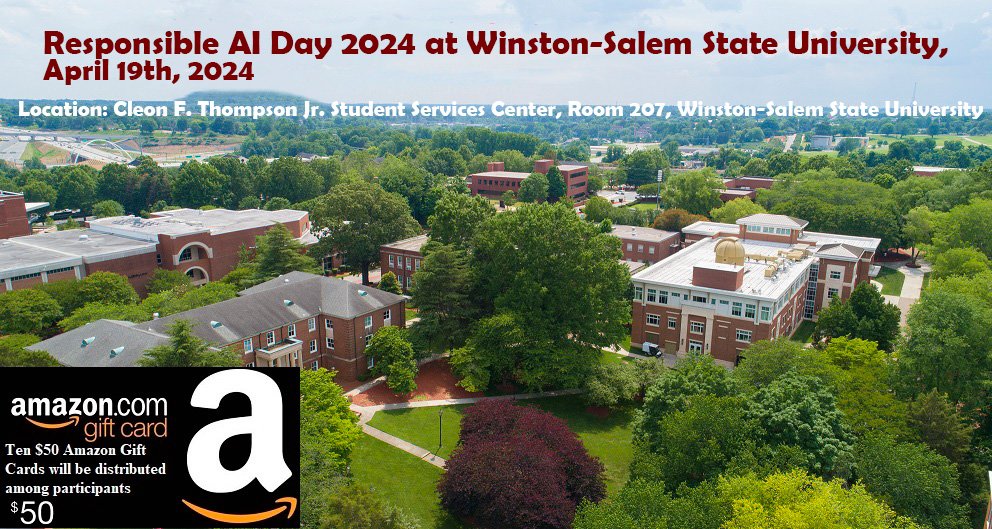
This event is organized by Center for Applied Data Science (CADS) at WSSU and is supported by Responsible Computing Challenge (RCC) award from Mozilla Foundation.
A day-long free scholarly event to engage student, faculty, staff, and local community members and create awareness of AI's ethical and harmful side and the importance of developing and using AI inclusively, ethically, and responsibly.
Location: Cleon F. Thompson Jr. Student Services Center, Room 207, Winston-Salem State University, Winston-Salem, NC
 |
|
Welcome Message |
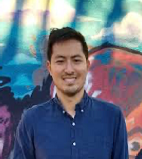 |
|
Welcome Message |
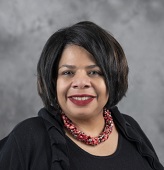 |
|
Closing remarks |
Keynote
Title: Moral AI and How We Get There
Dr. Walter Sinnott-Armstrong
Chauncey Stillman Distinguished Professor of Practical Ethics, Duke University
Bio: Walter Sinnott-Armstrong is Chauncey Stillman Professor of Practical Ethics in the Department of Philosophy and the Kenan Institute for Ethics at Duke University. His research is mainly on moral artificial intelligence, political polarization, free will and moral responsibility, and various topics in moral psychology and neuroscience. He teaches a MOOC, Think Again, on Coursera with over a million students registered. His trade book (with Vincent Conitzer and Jana Schaich Borg) on Moral AI and How We Can Get There was published in 2024.
Faculty Presentations
- Accuracy and Bias in ChatGPT & COMPAS, Dr. Bao Anh Maddux, Mathematics, WSSU
- AI Advancements and Reliability in Organic Pathways Modeling and Protein Folding, Dr. Charles Edward Ebert, Chemistry, WSSU
- Ethical Use of AI as Writing Tools: ChatGPT and Elicit, Flourice W. Richardson, English, WSSU
- Analyzing Ethical Implications of AI in International Films using the Montreal Declaration and UNESCO principles, Dr. Jeanine Lino S Couto, World Languages & Cultures, WSSU
- Human vs. AI Performance in Linear Kinetics, Dr. Michael Jarrett, Exercise Physiology, WSSU
- Exploring Intellectual Property, Creativity, and Authenticity of AI Art Using Roleplay, Dr. Scott Betz, Arts & Visual Studies, WSSU
- Ethical Considerations for Business Leaders: AI Case Studies and "Trolly Problems”, Zagros Madjd-Sadjadi, Accounting, Economics, & Finance, WSSU.
Student Panelists
- Mikayla Cathcart, Clinical Laboratory Science Major, WSSU
- Bliss Daodu, Biology Major, WSSU
- Sierra Agnew, Exercise Science Major, WSSU
- Sabrina Royal, English Major, WSSU
- Saniyah Drawhorn, Nursing Major. WSSU
- Syntel Woodard, Arts major, WSSU
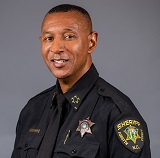 |
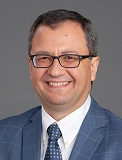 |
|
Sheriff Bobby F. Kimbrough, Jr., Forsyth county, NC |
Dr. Metin N. Gurcan, |
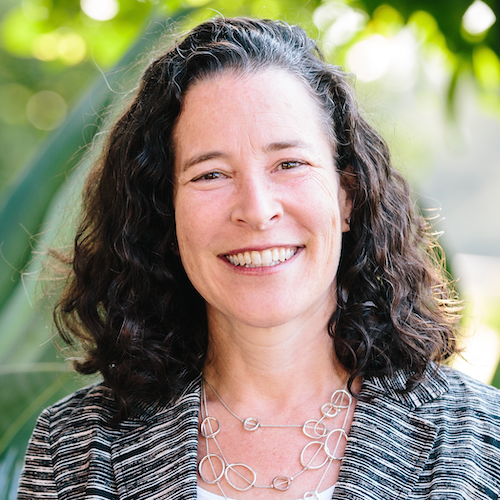 |
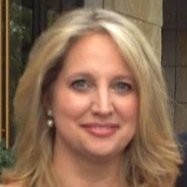 |
|
Dr. Rachel Levy, |
Dr. Vanessa Wrenn, |
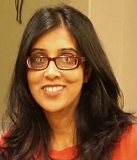 |
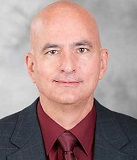 |
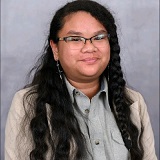 |
|
Dr. Debzani Deb, |
Dr. Greg Taylor, |
Danielle Casinillo, |
|
9:00 AM to 9:05 AM |
Opening Remarks |
|
9:05 AM to 9:15 AM |
Welcome Message |
|
9:15 AM to 9:20 AM |
Welcome Message |
|
9:15 AM to 9:20 AM |
Introduction of Keynote Speaker |
|
9:20 AM to 10:15 AM |
Keynote: Moral AI and How We Get There |
|
10:15 AM to 10:30 AM |
Break |
|
10:30 AM to 11:45 AM |
Faculty Presentations |
|
11:45 AM to 12:00 PM |
Engagement Quiz/Gift card |
|
12:00 PM to 1:00 PM |
Lunch will be provided |
|
1:00 PM to 2:00 PM |
Student panel |
|
2:00 PM to 2:15 PM |
Engagement Quiz/Gift card |
|
2:15 PM to 2:30 PM |
Break |
|
2:30 PM to 3:30 PM |
Panel: "Role of generative AI on future of education and society" |
|
3:30 PM to 3:45 PM |
Closing Remarks |
|
3:45 PM to 4:00 PM |
Wrap Up |
Please join us and Register,
Location: Cleon F. Thompson Jr. Student Services Center, Room 207, Winston-Salem State University, Winston-Salem, NC
We would like to thank the Responsible Computing Challenge (RCC) award from Mozilla Foundation. RCC is a partnership of Omidyar Network, Mozilla, Schmidt Futures, Craig Newmark Philanthropies, Rockefeller Brothers Fund, and Mellon Foundation.
- CADS Research Showcase Highlights 6 Groundbreaking Student/Faculty Research Projects
- Transforming the Triad with data science, Winston-Salem Journal, March 26, 2021
- WSSU awarded $1.5M grant to establish new Center for Applied Data Science, September 3, 2020.
- CADS Fellow Dr. Russell Smith and his Research on Spatial Justice is Featured in Winston-Salem Journal. August 21, 2020
- CADS Fellow Dr. Tennille D. Presley and her research on Integrating Music and STEM Teaching is featured in Scientia, August 5, 2020.
- WSSU Received one of the three ROI Grants that UNC awarded for 2021-2023. July 29, 2020
CADS will have its day long virtual annual symposium on May 11th. Please register here.
There will be opening and closing remarks from our esteemed Chancellor and Provost. We will have an exciting keynote titled "The Promise and Challenge of Using AI for Gun Violence Prevention" delivered by renowned scholar Dr. Desmond Upton Patton from Columbia University, NY. Also, there will be a panel addressed by our successful WSSU CS alumni working at institutions and companies like Google, Amazon, NC Central, and UC San Diego. The symposium will also showcase all the research and educational initiatives that the center was supporting during FY21-22 year. The agenda can be found here.
Our giveaways this year are $50 and 15 of them will be given away based on quiz performances.
Congratulations to Brixx-John Garcia Panlaqui, a CADS graduate research assistant, for successfully defending his Master's thesis titled "Path Forming of Healthcare Practitioners in an Indoor Space Using Mobile Crowdsensing". Brixx did an outstanding job in implementing his work and presenting it. A paper based on his thesis titled "Using RSSI to Form Path in an Indoor Space" is also accepted for publication in The 31st IEEE International Conference on Computer Communications and Networks (ICCCN 2022), which will be held in July, 2022. His thesis was supervised by CADS Director Dr. Debzani Deb and Research Fellow Dr. Muztaba Fuad. We are proud of you Brixx and wish you the best!
The workshop, held virtually, will be conducted by Data Carpentry from 25th May to 27th May 2022. This workshop will use a tabular ecology dataset and will teach data cleaning, management, analysis, and visualization using Python, the leading data analysis tool. There are no pre-requisites, and the materials assume no prior knowledge about Python. After completing this extensive hands-on workshop, participating faculty will
- Gain a better understanding about the data science tool Python and its application in data science research.
- Make connections with other like-minded faculty and discuss how to infuse data science into teaching, research, and/or grant effectively.
If interested, please complete the below form. Each application will be reviewed by CADS leadership team and 20 participants will be selected.
Application Form for the WSSU Faculty Development Workshop on Data Science 2022
Application Completion Deadline: April 29, 2022
For questions, please email debd@wssu.edu
CADS had an engaged and well-attended Student Research Showcase event and poster and oral presentations as part of WSSU Innovations Festival and Scholarship Day, 2022.
Thanks to our student researchers Brixx-John Garcia Panlaqui, Tonya K. McInnis, Anthony Smith, Raj Poudyel, Timothy Pittman Jr., Alexis Bryant, Makayla Moore, and Jonathan Ross for their hard work and inspiring presentations. Also, thanks to our faculty fellows and research associates Dr. Steve Aragon, Dr. Russell Smith, Dr. Jill Harp, Dr. Tennille D. Presley, Dr. Muztaba Fuad, Dr. Felicia Simpson, Dr. Kiayia Propst, and Charles Mickle for mentoring our students. Finally, after two years since the center began, It was great to have us all in a single picture!
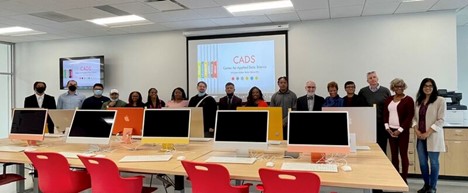
We are honored and delighted to have Peter Hans, the seventh president of the University of North Carolina System, WSSU Chancellor Elwood Robinson, and WSSU Provost Anthony Graham at the Center for Applied Data Science (CADS) on 17th March, 2022. We discussed our accomplishments so far and strategies to enhance institutional capacity in the area of applied data science while ensuring diversity, equity, and inclusion.
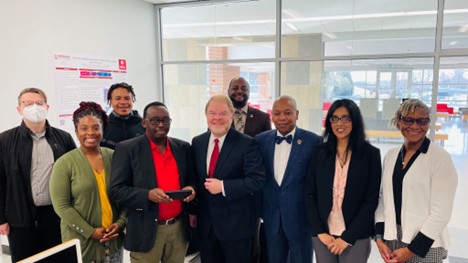
CADS is so excited to be part of the Academic Data Science Alliance Annual meeting in Irvine, CA. We are proud to join this community of academic data science practitioners, administrators, and educators to collectively shape this field to be equitable and inclusive for everyone. CADS Director Dr. Debzani Deb and Fellow Dr. Keith had a chance to interact with nations data science leaders and presented their poster showcasing CADS at WSSU.
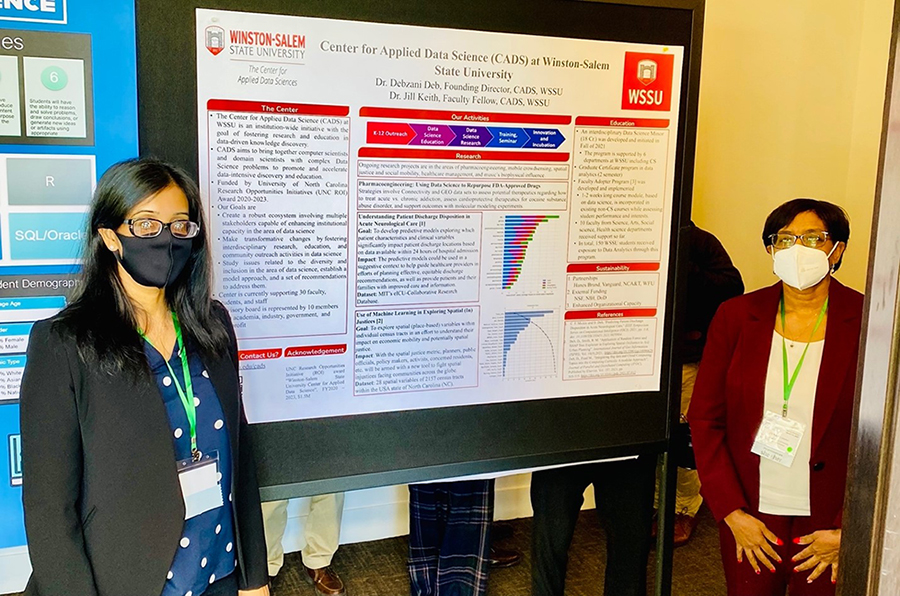
Center for Applied Data Science (CADS) at Winston-Salem State University is excited to organize its inaugural annual symposium on Friday, May 7th, 2021. This symposium aims to increase awareness, diversity, and inclusion in the interdisciplinary field of Data Science across WSSU and local communities. Our esteemed chancellor, Dr. Elwood L. Robinson, will be delivering the welcome message. The keynote will be addressed by Dr. Fay Cobb Payton, NSF Program Director and Professor of Information Technology and Analytics at North Carolina State University. The symposium will showcase ongoing CADS activities such as faculty and student research, curriculum initiatives, and an information session about data science educational opportunities offered at WSSU. The symposium will also offer a panel discussion addressed by highly esteemed and nationally recognized colleagues from academia, industry, research facility, and non-profit organizations. The symposium will end with closing remarks offered by our beloved Provost Dr. Anthony Graham.
Date and Time: Tuesday, April 6, 202, 10:00 AM - 11:00 AM
Contact: Dr. Debzani Deb, Founding Director, CADS, debd@wssu.edu
The virtual showcase offered by the Center of Applied data science (CADS) at WSSU will contain oral presentations and Q&A sessions performed by a group of students who are involved in varieties of research projects supported by CADS. See the CADS Events calendar for more details.
Association of Computer Science Departments at Minority Institutions (ADMI) 2021 symposium
A paper titled as “Exploring the Impact of Inner Social Networking Factors on Cognitive Aging through Predictive Analysis” and co-authored by John Milton, Dr. William Nick, and Dr. Debzani Deb was presented at ADMI 2021 conference. This paper reports on work that tries to provide insight into how a person’s cognitive aging maybe impacted by their inner/closer social networking factors. The paper applied data science and machine learning techniques to investigate the presented research. The data used was from publicly available data collections supported by the National Institutes on Aging. A regression analysis was performed in predicting the cognitive impairment of a person. The results of the four machine learning techniques were compared. Out of those four, the random forest worked the best on accurately predicting the cognitive scores. Future work will explore classifying cognitive abilities and will investigate the most important features.
Dr. Deb was invited to provide an overview of CADS on the March 16th Board of Trustees Academic Affairs Committee meeting. The meeting was attended by Chancellor Dr. Elwood L. Robinson, Provost Dr. Anthony Graham, and the members of the Board of Trustees Academic Affairs Committee. In her presentation, Dr. Deb provided a brief overview of CADS to the Board of Trustees members and explain how this Center positions the university to support not only the institution’s research enterprise but also to assist the community—campus community and larger community—with addressing persistent questions or concerns.
The CADS center recently announced its first cohort of Faculty Adopter Award recipients. Faculty Adopter Awards are designed to support enthusiastic WSSU faculty who are willing to infuse data science into their courses across various disciplines and are capable of quantitatively and qualitatively assess the impact of their interventions. The recent award recipients are:
- Sangkwon Lee, Visiting Assistant Professor of Physical Education/ Sports Science
- Kelly Minor, Assistant Professor of Psychological Sciences
- Jack Monell, Associate Professor of Justice Studies
- Felicia Simpson, Assistant Professor of Mathematics
- Jiangmin Xu, Associate Professor of Health Care Management
The awardees will develop relevant course modules in data science, deploy them in their respective courses, collect and analyze student assessment and survey data, and disseminate the modules and the study results. As part of these intervened courses, students will acquire basic understanding of data analytics and data-driven decision making and will gain hands-on-experience on using data science tools and techniques.
Dr. William Nick received his PhD in computer science from North Carolina Agricultural & Technical State University in 2018 and worked as intern and research associate at US Army Construction Engineering Research Laboratory, and Naval Surface Warfare Center Dahlgren Division. His research focuses on machine learning and its application on health monitoring and identity and security. As Postdoctoral Research Associate, Dr. Nick will conduct novel research in an environment that fosters multidisciplinary and collaborative research across many domains. We are excited that Dr. William Nick is eager to lead the analytical efforts of the interdisciplinary research projects for the center.
The Faculty Adopter Awards are designed to support enthusiastic WSSU faculty who are willing to infuse data science into their courses across various disciplines and are capable of quantitatively and qualitatively assess the impact of their interventions. CADS center will support necessary training to a group of selected faculties who will then develop contextual course modules, assessments, and projects and perform in-class deployment of the modules. The solicitation is available here. The due date is January 15, 2021.
Dr. Debzani Deb, Director of the Center for Applied Data Science (CADS) & Associate Professor of Computer Science at Winston-Salem State University, presented some of the latest research coming out of CADS at the 19th IEEE International Conference on Machine Learning and Applications (ICMLA) Virtual Conference on December 14, 2020. The conference, originally scheduled to be held in Miami, Florida, seeks to bring together a wide variety of people to share the latest research related to Machine Learning (ML). The research presented was focused on the use of machine learning to explore spatial injustices and was conducted in collaboration with CADS Faculty Fellow – Dr. Russell Smith, Professor of Geography & Faculty Lead of the Spatial Justice Studio.
For more than two decades, scholars have been espousing the power of spatial justice to help develop more equitable and just communities. However, defining spatial justice and developing a methodology for quantitatively analyzing spatial justice is complicated and no agreed upon metric for examining spatial justice has been developed. As a result, the paper presented at the conference explored place-based variables within individual census tracts in an effort to understand their impact on spatial justice. The methodology employed by Drs. Deb and Smith relies on data science and machine learning techniques and the results showed that the deep leaning model was able to predict economic mobility of a census tract based on its spatial variables with 89% accuracy. In the end, this research will allow for comparative analysis between differing geographies and also identify leading variables in the overall quest for spatial justice.
On November 6th, 2020, the Center for Applied Data Science (CADS) at Winston-Salem State University, hosted its inaugural advisory board meeting. The half day event was attended by all ten advisory board members representing WSSU, UNC schools, U.S. Department of Education, Piedmont Triad Regional Council (PTRC), and South Big Data Innovation Hub. CADS Director, Faculty fellows, and the CADS evaluation team actively updated the board members about the current and future activities and sought their inputs in assessing and sustaining the activities. The discussion was based on the following four questions
- What are the factors that impede or enable broader adoption of research, education or outreach of interdisciplinary data science efforts?
- What would be a comprehensive set of strategies to tackle these impediments or enabling factor and consecutively incorporate them into center activities.
- How can the CADS Center maximize achievement of its goal to “foster interdisciplinary research in data science”?
- What are your perceptions on diversity and inclusion issues related to data science and what are your thoughts to address them?
User-Level Profiler-Based Predictive Framework for Applications in Multi-Tenant Clouds
Speaker: Hamidreza Moradi, The University of Texas at San Antonio
Wednesday, October 28
Clouds have been adopted by many organizations as their computing infrastructure due to the support for flexible resource demands and low cost of ownership, which is normally achieved through sharing the underlying hardware among multiple cloud tenants. However, such sharing can result in large variations for the performance of applications running in virtual machines (VMs) on the same hosts. Users need an accurate performance prediction of their cloud applications to support many cloud resource management and auto-scaling policies. In this presentation, a user-level application performance modeling and prediction framework based on micro-benchmarks and machine learning algorithms will be provided to help the users predict the performance of their applications. Specifically, a few micro-benchmarks are devised to probe the in-situ perceivable performance of system resources in the target VM. Then, based on such probe information and in-place measured performance of applications, the performance model is built for future predictions.
Check the Faculty / Staff Calendar for more information.
Analyzing Disaster-related Twitter Data and Identifying Panic Triggers for Cyber Disruption Prevention and Emergency Response Enhancement
Speaker: Dr. Nasser Assery, NC A&T University
Wednesday, October 21, 2:00 PM
Twitter plays an important role during crises since it has gained a wide adoption over the years as a prominent news source, often disseminating information faster than traditional news media. During natural catastrophic events such as hurricanes, people exchange a high volume of posts concerning the events. Making sense of the information spread on Twitter is challenging due to the limitations of available tools to analyze high-volume data. This presentation will discuss how machine learning has been used in addressing the presence of three cyber disruption problems that occurred during natural disasters, including Hurricane Florence and Hurricane Michael. First, during a disaster, it has been a challenge to identify which posts are actually related to the disaster since some users take advantage of the disaster events and promote their products, campaigns, or sales promotions, causing a distraction for emergency responders and disaster analysts as they spread abundantly. Second, on Twitter, people disseminate not only true information but also false information unintentionally. It can be challenging to tell if a post is credible or not, which can be misleading for the public, especially if the posts usually contain critical information. Finally, the information disseminated on Twitter during a disaster event contains critical indicators about warnings, evacuation orders, updates, and emergency actions, which could incite panic, affecting the general population's response and evacuation behavior, leading to undesirable incidents. The presentation will also discuss how the knowledgebase and findings from this research could be integrated into different domains, showing a few examples of existing data science issues in various disciplines.
Check the Faculty / Staff Calendar for more information.
A seminar on CADS center as part of Computer Science Departmental Seminar Series
September 29, 2020.
The Center for Applied Data Science (CADS) at WSSU is an institution-wide initiative with the goal of fostering research and education in data-driven knowledge discovery. CADS aims to bring together computer scientists and domain scientists with complex Data Science problems to promote and accelerate data-intensive discovery and education. Ongoing research projects are in the areas of pharmacoengineering, mobile crowdsensing, spatial justice and social mobility, healthcare management, and music’s biophysical influence on the human body. The other center activities include curriculum infusion and enhancement, workshops and training, innovation and incubation, career development in data science, seminar series and annual symposium, and K-12 and community outreach. The center also focuses on creating an ecosystem and a robust community involving multiple stakeholders from academia, industry, government, private, and non-profit sectors in identifying factors that impede or enable inclusion and diversity in data science research and education.
Speakers:
- Dr. Debzani Deb, Associate Professor of Computer Science and Director of the CADS Center
- Dr. Steve Aragon, Associate Professor, Department of Healthcare Management
- Dr. Muztaba Fuad, Professor, Department of Computer Science
- Dr. Jill Keith, Professor of Biochemistry, Department of Biological Sciences
- Dr. Tennille D. Presley, Associate Professor of Physics, Department of Chemistry
- Dr. Russell Smith, Professor of Geography, Department of History,Politics and Social Justice
Check the Faculty / Staff Calendar for more information.
Goal: Create an ecosystem and a robust community at WSSU involving multiple stakeholders capable of enhancing institutional capacity in the area of data science.
Strategies:
- Recruit postdoc (1), faculty course adopters (6) and GRA/URA student researchers (12) and involve them to center activities.
- Establish different sub-sectors such as research, curricular, training, incubation and innovation, career, outreach, seminar/symposium within CADS, support their activities and assess their progresses in enhancing institutional capacity.
- Improve community awareness and involvement through seminars, annual symposium, website, social media etc.
- Collaborate with WSSU centers such as BRIC, CSEM, and Spatial Justice Studio on research publications and grant writings.
- Through advisory board meetings (2) and large-scale community meetings (1), gather advisory board and community input on identifying factors that enhances broader adoption of data science.
- Build strong partnership with outside entities such as SouthBDHub, OpenDS4All, UNCA, NCSU, JSU, IBM academic initiative etc.
Goal: Foster interdisciplinary research, education and outreach activities in DS.
Strategies:
- Support the five proposed data-driven research projects and respective research fellows (5) in the areas of Biology, Physical Science, Computer Science, Health Science, and Social Science.
- Infuse data science content and knowledge into existing non-cs courses (6) and Identify “emerging” pedagogies for teaching data science in diverse disciplines.
- Explore the feasibility of having a minor/option/concentration in data science and support the existing graduate certificate in data analytics programs.
- Support dissemination of center activities, research results, and conference participation/presentation of center affiliated personnel (researchers, educators, and student research assistants).
CADS is pleased to welcome four graduates and five undergraduate research assistants to our team. Leticia Almanza, a graduate student of Information Technology at WSSU, will exercise her database management expertise to develop and maintain a searchable repository of course and research modules developed by the center personnel. Charles Mickle, a graduate student of Computer Science, will be managing cloud and cluster resources and developing tutorials and videos for their usage. John Milton, a graduate student of Computer Science, will be assisting faculty adopters in developing and deploying their course modules. Cherith Kay, an undergraduate student of Information Technology, will be developing k-12 outreach materials and conducting them in local middle and high schools. Hector Santiago, an undergraduate student of Computer Science, will be managing the center website and social networking platforms.
Dr. Kiayia Propst, a graduate student of Healthcare Administration at WSSU, will be assisting Fellow Dr. Aragon in his research project of investigating Provider Patient-Centeredness and its Effects on Patients’ Experience-of-care. Anthony Smith, an undergraduate student of Computer Science, will be aiding Fellow Dr. Fuad in analyzing Mobile Crowdsourcing Data. Alexis Blount, an undergraduate student of biology, will help Fellow Dr. Keith in her research project focused on Data-centric Therapeutic Predictions. Timothy M. Pittman, an undergraduate student of Information Technology, will be helping Fellow Dr. Presley in her research work of Using Data Science to Elucidate Music’s Biophysical Influence on the body. Megh Poudyel, an undergraduate student of Computer Science, will be assisting Fellow Dr. Smith with his research work on the Spatial justice index.
August witnessed another meeting of the CADS Director and Faculty Fellows to discuss progress related to the grant, answer questions and outline the next steps in the process of building a world-class Applied Data Science Center at WSSU. To that end, a major milestone was announced at the meeting, the launch of the CADS website. The new website showcasing the work of CADS will be housed under the ‘Research’ link on WSSU’s homepage. This location will provide a prominent spot to highlight all of CADS work related to education, outreach and scholarship.
Other important items discussed at the meeting included a discussion on technological needs for Faculty Fellows, the announcement of a Post-Doc employment opportunity to work with CADS, the proposed meeting of the CADS Advisory Board in October 2020, a review of the research project timelines for each Faculty Fellow and the development of a seminar series to coincide with the life of the grant. Before convening, the meeting introduced the potential of establishing a minor in Data Science at WSSU. This new program would harness the support of CADS to provide interested undergraduate students an avenue to further their education in Data Science and increase the exposure of underrepresented groups to this exciting and growing field of study.
On June 25th, Dr. Debzani Deb, Associate Professor of Computer Science and Director of the newly established Center for Applied Data Science (CADS) at Winston-Salem State University, hosted the inaugural meeting of CADS staff and faculty fellows. CADS was made possible through a $1.5 million grant from the UNC System and seeks to create an ecosystem and a robust community involving multiple stakeholders capable of enhancing institutional capacity in the area of data science for and making transformative changes by fostering interdisciplinary research, education and outreach activities in data science through studying issues related to the diversity and inclusion in the area of data sciences. The CADS center seeks to establish a model approach and a set of recommendations to address them and contribute in creating a diverse group of skilled workforces that is capable of fully exploiting the capacities of data science, in service of the national interests.
The meeting’s agenda was focused on providing background on the grant application, CADS overall mission and goals, the organizational structure of the Center and next steps in the successful implementation of the grant, which is scheduled to run from 2020-2023. Over the next couple of years, CADS will be supporting five Faculty Fellows research projects that all infuse data science skills and techniques into their work. The Faculty Fellows come from a wide variety of disciplines including healthcare management, chemistry, biology, computer science and geography. This inter-disciplinary team will rely upon the support of CADs and undergraduate research assistants in completing their research projects. The meeting concluded with a discussion on the best means of communication moving forward, a homework assignment, that included the development of specific timelines for each Faculty Fellows project, and directions on how to proceed with hiring an undergraduate research assistant. All those in attendance were excited by the potential that CADS brings to WSSU and the larger local community.

